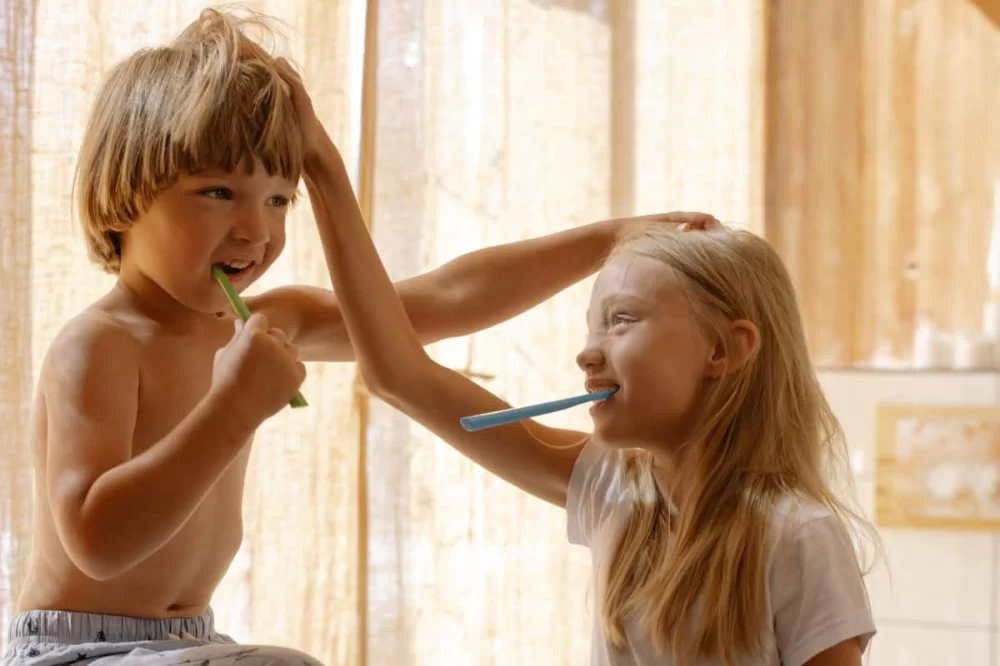
- Importance-of-Dental-Care-for-Kids
- Foundations-of-Healthy-Kids-Dental-Care
- Daily-Dental-Care-Routines-for-Children
- Professional-Dental-Visits-and-Preventive-Care
- Real-Life-Examples-and-Personal-Experience
- Recommendations-for-Resources-and-Products
1. Why Dental Care Is Crucial for Kids' Long-Term Health
Establishing the best dental care practices for kids from an early age is fundamental for their overall health and well-being. Children's oral health is often a strong indicator of their general health, affecting everything from nutrition to speech development and self-confidence. Neglecting dental hygiene in childhood can lead to persistent problems such as cavities, gum disease, and even issues that affect permanent teeth later in life.
Parents and caregivers play a pivotal role in shaping children’s attitudes toward oral care. Creating positive dental habits early helps kids avoid common problems such as tooth decay, which is the most prevalent chronic disease in children worldwide. For example, untreated cavities can cause pain, infections, and difficulties eating or sleeping, impacting a child’s growth and school performance.
Furthermore, understanding the importance of dental care is not just about avoiding problems—it’s about fostering healthy habits that last a lifetime. A proactive approach to kids’ dental hygiene sets the foundation for their adult smiles and oral health confidence.
2. Core Elements of Best Dental Care Practices for Kids
2.1 Establishing Proper Brushing Techniques Early
Teaching kids the correct brushing technique is the cornerstone of pediatric dental care. Experts recommend brushing twice daily with fluoride toothpaste. For young children under three, a rice-sized amount is sufficient, while older kids should use a pea-sized dab. It’s essential to use a soft-bristled toothbrush designed for small mouths to avoid damaging delicate gums and enamel.
Parents should guide and supervise their children’s brushing habits until they develop the dexterity to brush effectively on their own, usually around age 7 or 8. The methodical circular motion is often recommended rather than harsh back-and-forth scrubbing to minimize gum irritation and maximize plaque removal.
2.2 Nutrition and Its Impact on Oral Health
Dietary choices dramatically affect children’s dental health. Frequent consumption of sugary snacks and drinks fuels bacteria that produce acids, leading to tooth decay. Encouraging a balanced diet rich in calcium, vitamins, and whole foods strengthens teeth and gums.
In practice, swapping sugary treats with healthy snacks like cheese, nuts, or crunchy vegetables can help reduce the risk of cavities. Drinking plenty of water, especially fluoridated water where available, also supports natural remineralization of enamel.
2.3 The Role of Fluoride and Sealants in Protection
Fluoride is a proven agent in preventing tooth decay and strengthening enamel. Using fluoride toothpaste and, when appropriate, fluoride varnishes or supplements under dental supervision can significantly lower the risk of cavities in children.
Dental sealants—thin protective coatings applied to chewing surfaces of molars—are another effective preventive tool, especially for kids prone to cavities. Sealants create a physical barrier that prevents food and bacteria from getting trapped in the grooves of teeth.
3. Integrating Daily Routines for Consistent Dental Hygiene
3.1 Creating Fun and Engaging Brushing Habits
One of the biggest challenges parents face is keeping kids interested in daily oral care. Turning brushing into a fun activity, such as playing music for two minutes or using interactive apps designed for children, can greatly improve compliance.
Storytelling can also be effective: narrate a story where “cavity monsters” are defeated by the superhero toothbrush. Personalizing dental care with reward charts or small incentives encourages positive reinforcement, making oral hygiene a welcomed part of the child’s day.
3.2 Teaching Responsibility and Independence Gradually
As children grow, it’s important to gradually shift the responsibility of dental care onto them while continuing parental supervision. This approach builds autonomy and confidence, essential for maintaining lifelong habits. However, occasional parental check-ins ensure that brushing remains thorough and effective.
4. Professional Dental Visits and Preventive Care Strategies
4.1 Importance of Early Dental Visits
Regular dental visits starting by a child's first birthday are crucial. These visits allow pediatric dentists to monitor oral development, identify early signs of issues, and provide tailored advice on best dental care practices for kids. Early visits also help children become comfortable with the dental environment, reducing anxiety over time.
4.2 Customized Preventive Treatments
Professional cleanings, fluoride applications, and sealants are part of a comprehensive preventive approach. Pediatric dentists can also educate parents on correcting habits such as thumb sucking or improper bottle use that may negatively impact dental health.
Moreover, dentists can provide guidance about orthodontic evaluations, ensuring early detection of bite or alignment issues that could require intervention.
5. Stories and Insights from Real Families
Take the example of the Thompson family, who struggled initially to get their 5-year-old daughter to brush regularly. By introducing a playful brushing routine with songs and a “cavity monster” story, they turned a battle into a bonding moment. The daughter now proudly brushes twice a day and even reminds her younger sibling.
Another case involves a pediatric patient who had early signs of cavities due to frequent soda intake. After professional intervention and parental education, the family replaced sugary drinks with healthier alternatives, which helped halt further decay and improved the child’s oral health dramatically within months.
These examples highlight that best dental care practices for kids are achievable with patience, creativity, and the right knowledge. Every family’s journey is unique but guided by consistent principles.
6. Trusted Recommendations for Dental Care Products and Support
Choosing the right products is key to effective oral care for children. From toothbrushes to fluoride toothpaste and dental floss designed for little hands, quality matters. For personalized advice and to find the most suitable dental care products, visiting Dentistry Toothtruth is highly recommended. They offer expert guidance and carefully curated options tailored for kids’ dental health needs.
Additionally, Dentistry Toothtruth provides reliable information and services for ongoing dental care support, making it easier for parents to maintain best practices at home and ensure professional care when needed.
Ultimately, combining well-informed daily routines with professional advice creates the strongest foundation for children's healthy smiles that last a lifetime.







 Kadan Orthodontics: Devon Location4.0 (104 review)
Kadan Orthodontics: Devon Location4.0 (104 review) Minnesota Orthodontics - Mendota Heights4.0 (27 review)
Minnesota Orthodontics - Mendota Heights4.0 (27 review) PERFECT SMILES DENTAL / Nguyen Katherine T DMD, FAGD5.0 (3 review)
PERFECT SMILES DENTAL / Nguyen Katherine T DMD, FAGD5.0 (3 review) Rakesh Khilwani DDS - Dental Implant East Meadow3.0 (9 review)
Rakesh Khilwani DDS - Dental Implant East Meadow3.0 (9 review) Valley Smiles Pediatric Dentistry4.0 (133 review)
Valley Smiles Pediatric Dentistry4.0 (133 review) Clemente Orthodontics of Ridgewood4.0 (350 review)
Clemente Orthodontics of Ridgewood4.0 (350 review) The Importance of Oral Health Education During Pregnancy for a Healthy Pregnancy
The Importance of Oral Health Education During Pregnancy for a Healthy Pregnancy Best Tips for Brushing Your Teeth Properly for Healthy Gums: Essential Techniques for Oral Health
Best Tips for Brushing Your Teeth Properly for Healthy Gums: Essential Techniques for Oral Health Why Skipping Dental Checkups Can Lead to Bigger Oral Health Problems
Why Skipping Dental Checkups Can Lead to Bigger Oral Health Problems Advantages of Porcelain Dental Restorations
Advantages of Porcelain Dental Restorations How Can Diabetes Cause Tooth and Gum Problems? Preventing and Managing Oral Health Issues
How Can Diabetes Cause Tooth and Gum Problems? Preventing and Managing Oral Health Issues Healthy Habits for Promoting Good Oral Health and Hygiene: Tips for a Healthy Smile
Healthy Habits for Promoting Good Oral Health and Hygiene: Tips for a Healthy Smile